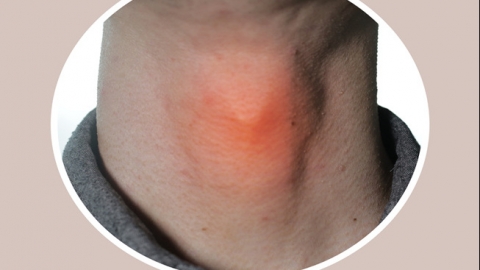How to Quickly Recover Your Voice When You Lose It
Generally speaking, there is no such thing as "how to recover voice quickly when hoarse." Hoarseness may be caused by factors such as unhealthy lifestyle habits, excessive voice use, vocal polyps, gastroesophageal reflux, or acute laryngitis. Depending on the specific situation, treatment options such as general care, medication, or surgery can be used to manage or alleviate symptoms. It is recommended to seek timely medical attention, identify the underlying cause, and undergo symptomatic treatment under a doctor's guidance. Detailed explanations are as follows:

1. Unhealthy Lifestyle Habits
Habits such as staying up late and consuming spicy foods can irritate the throat, leading to hoarseness, which may be accompanied by symptoms like sore throat, coughing, and phlegm. It is recommended to adjust lifestyle habits, ensure adequate sleep, maintain a light diet, and avoid spicy or irritating foods.
2. Excessive Voice Use
Speaking loudly for prolonged periods, singing, or shouting can overstrain the vocal cords, causing them to rub against each other and become damaged, resulting in hoarseness accompanied by throat pain and coughing. It is recommended to drink plenty of water to keep the throat moist or inhale steam to help relieve throat discomfort.
3. Vocal Polyps
Vocal polyps are benign proliferative lesions of the vocal cord mucosa that can lead to incomplete vocal cord closure, thereby affecting voice quality. Symptoms may include effortful speech and changes in pitch. Patients can undergo vocal polyp removal under indirect laryngoscopy as directed by a physician.
4. Gastroesophageal Reflux
Stomach acid flowing back into the throat can irritate the laryngeal mucosa, causing inflammation and hoarseness, which may be accompanied by chest pain, acid reflux, belching, and nausea. Patients may take medications such as Cisapride tablets, Esomeprazole Magnesium Enteric-coated tablets, or Rabeprazole Sodium Enteric-coated tablets under medical supervision.
5. Acute Laryngitis
Inflammation of the throat caused by viral or bacterial infections can lead to vocal cord swelling and hoarseness, possibly accompanied by fever, coughing, and throat pain. Patients may follow medical advice to use medications such as Prednisolone tablets, Dexamethasone Sodium Phosphate Injection, or Ambroxol Hydrochloride Solution for inhalation.
In daily life, maintaining healthy lifestyle and dietary habits, avoiding excessive voice strain, and minimizing exposure to harmful irritants can help promote rapid recovery of the voice.








